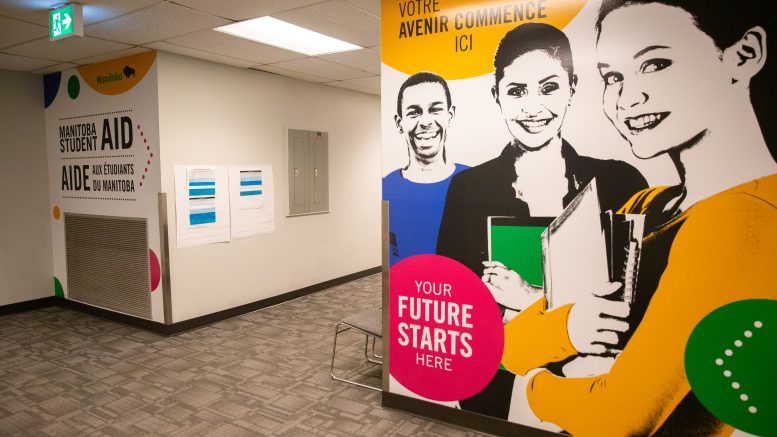With the U of M fall fee deadline and the Manitoba provincial election only a day apart, Manitoba Student Aid (MSA) is a high priority issue for students in the provincial campaign.
UMSU vice-president advocacy Liam Pittman said that he’s heard from students “over and over again” about the challenges faced when attempting to access Manitoba Student Aid (MSA).
Specifically, Pittman said that the issues raised by students include the amount of time it takes for payments to be received, confusion regarding the merging of Manitoba and federal loan applications and that those who have been granted university awards cannot receive them until their application is approved.
Pittman has personal experience with the MSA office. He noted that he waited over an hour and a half to speak with someone in person at the office. He said that he and other students have not been successful when attempting to speak with someone from MSA over the phone.
When asked what he thought the root of the issue was with MSA, Pittman said that the main concern seems to be staffing shortages.
The Manitoban attempted to phone Manitoba Student Aid but was not successful in getting through to an employee.
Manitoba New Democratic Party (NDP) leader Wab Kinew and Manitoba Liberal Party leader Dougald Lamont echoed Pittman’s concern of a staffing shortage.
Lamont said that Manitoba currently has a “Swiss cheese government that’s full of holes” as the PCs are not filling MSA staff vacancies when employees leave positions. Kinew agreed with the problem of reduced staffing, noting that the MSA does not currently have the “horsepower” to support the student aid system and assistance programs.
In 2023, the provincial government increased the Manitoba maximum student loan benefit to $200 per week, its first increase since the 2005-06 academic year. Yet, at the same time, tuition has been increased by 10.2 per cent over the past three years alone.
UMSU sees advocating for a tuition freeze as the best path forward for student affordability, meaning that tuition would stay at its current rate each year until further notice.
The NDP, Liberal, and Green parties all have different outlooks on how to best support students and universities financially.
Kinew said that if elected his party would focus on making a “significant new investment in scholarships and bursaries,” and that the advantage of this approach is that funding can be targeted toward students with the greatest needs.
When asked about targeting the issue of soaring tuition costs, Kinew said his party is committed to “ensuring that tuition is affordable” but would put initial focus on creating scholarships to combat tuition fees. Due to tuition raises already in effect for this academic year, Kinew said that his party would reassess priorities surrounding tuition for the 2024-25 year.
Lamont said that his party would push for “tuition regulations” limiting tuition increases for Manitoba universities. His party would also focus on grants and bursaries so that students are not relying on loans.
Along with focusing on student funding, the Liberals would look to “properly fund the university of Manitoba and other universities so that they can provide the high-quality education at a reasonable cost,” said Lamont.
Green party leader Janine Gibson has a different outlook on how students should be supported.
When asked, Gibson did commit to a tuition freeze, but only as a “step towards free education.”
Gibson believes that it is a “culture’s responsibility” to assist anyone who wishes to pursue further education, as it is an investment in students’ futures. To implement free education, Gibson sees following the blueprints of Nordic counties as the best path forward.
Premier Heather Stefanson and Minister of Advanced Education and Training Sarah Guillemard were not available for comment, however, Pittman said in his August report to the UMSU board that in the union’s meeting with Minister Guillemard on Aug. 23, she did not signal either way to considering a tuition freeze.
Pittman’s report read that in the same meeting with Guillemard, the minister said the inaccessibility of MSA is something that the government is looking into, specifically regarding the website and its functionality.
In response, UMSU expressed that it would appreciate a consultation during process so that student concerns could be addressed.
Regardless of three provincial parties showing no sign of committing to a tuition freeze, UMSU believes that the best course of action is to continue pushing for a tuition freeze while simultaneously calling on the provincial government to increase funding for universities so that there is no drop in the quality of education and services.





